
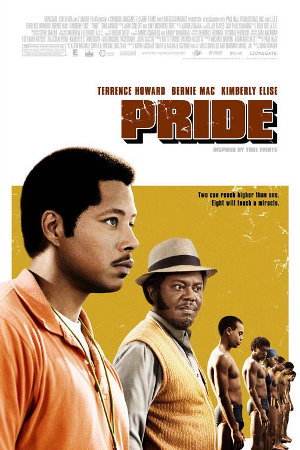 Pride is one of those films with strong ambitions that doesn’t know how to achieve the level of success it desires. Instead of taking the time to delve deep into the racial overtones of the period, which instead are painted broadly in black (good) and white (misguided at best, evil at worst), the film relies on regular sports cliches about a troubled coach coming in and changing the lives of disheartened kids to tell its story.
Pride is one of those films with strong ambitions that doesn’t know how to achieve the level of success it desires. Instead of taking the time to delve deep into the racial overtones of the period, which instead are painted broadly in black (good) and white (misguided at best, evil at worst), the film relies on regular sports cliches about a troubled coach coming in and changing the lives of disheartened kids to tell its story.
Jim Ellis (Terrence Howard) was a collegiate swimmer who struggled to compete because he was black and alive during the racial divisive 1960’s.
After graduating Ellis was unable to find himself a coaching position and through a series of odd events, choices, and coincidences, found himself as a coach of the Philadelphia Department of Recreation.
The story arc rings a little too close to Hoosiers (complete with a wary love interest, Kimberly Elise, related to one of the players), and the scene where the kids find pride and stand up for their coach by standing on their desks and saluting “O Captain, My Captain” by standing up and saluting “This is our house!” is impossible not to compare to Dead Poets Society.
There’s also a subplot with a local thug who is supposed to be a bad influence though the worst thing he does over the course of the film is pee in a pool. Almost Disney-esque.
The kids themselves are your stereotypical bunch which includes the talented but unmotivated one (Nate Parker), the dumb one (Evan Ross), the nerdy one with glasses (Brandon Fobbs), and the girl (Regine Nehy).
Through these problems the film does find a struggle and story that you can get into. You want these kids to succeed and you want the racist coach of the nearby university (Tom Arnold) to get the comeuppance he deserves. Howard provides the film’s heart and Bernie Mac provides the needed influx of humor.
Although cheesy at times the film does have an important message and explores some troubling rascist attitudes which were very much a part of the culture of the 1970’s.
Still, the film’s overall stance, implied though not stated, that all white people are bad (except one minor character with ten seconds of screentime) and all black people are basically good people (remember even the gangsters aren’t that tough) only missing the opportunity to prove their equality or even superiority is a little over-simplistic for what could have been a more historically accurate film, especially one that prides itself as being based off a true story.
The end result is mixed, but there are enough reasons, including a positive message at the heart of the film, that I can recommend it. It’s not for everyone, but those wanting to see it should leave the theater with plenty to talk about.


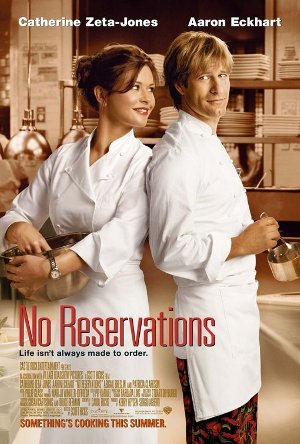
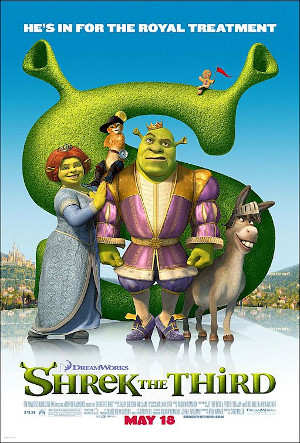 Well, the good news is the third installment isn’t the complete disaster that many saw coming. The bad news however is it isn’t nearly as good as Shrek 2. Still, it has some memorable moments and a few laughs, and should entertain you for most of it’s 93 minute running time.
Well, the good news is the third installment isn’t the complete disaster that many saw coming. The bad news however is it isn’t nearly as good as Shrek 2. Still, it has some memorable moments and a few laughs, and should entertain you for most of it’s 93 minute running time.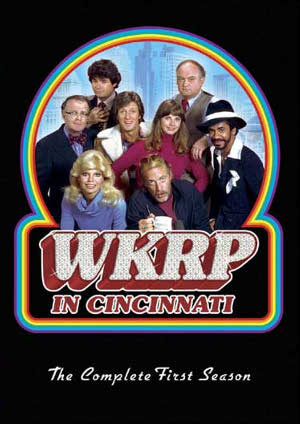 WKRP was a small time radio station in Cincinnati during the late 1970’s. Run by the bumbling son, referred to as “the big guy” (
WKRP was a small time radio station in Cincinnati during the late 1970’s. Run by the bumbling son, referred to as “the big guy” (
 Pride is one of those films with strong ambitions that doesn’t know how to achieve the level of success it desires. Instead of taking the time to delve deep into the racial overtones of the period, which instead are painted broadly in black (good) and white (misguided at best, evil at worst), the film relies on regular sports cliches about a troubled coach coming in and changing the lives of disheartened kids to tell its story.
Pride is one of those films with strong ambitions that doesn’t know how to achieve the level of success it desires. Instead of taking the time to delve deep into the racial overtones of the period, which instead are painted broadly in black (good) and white (misguided at best, evil at worst), the film relies on regular sports cliches about a troubled coach coming in and changing the lives of disheartened kids to tell its story.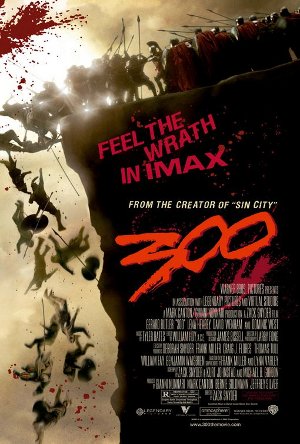 300 is the artistic retelling of the legend of 300 Spartans who stood against the mighty force of the entire Persian army, numbering in the millions, and held their ground at the Battle of Thermopylae in 480 B.C. Ripped from the pages of
300 is the artistic retelling of the legend of 300 Spartans who stood against the mighty force of the entire Persian army, numbering in the millions, and held their ground at the Battle of Thermopylae in 480 B.C. Ripped from the pages of